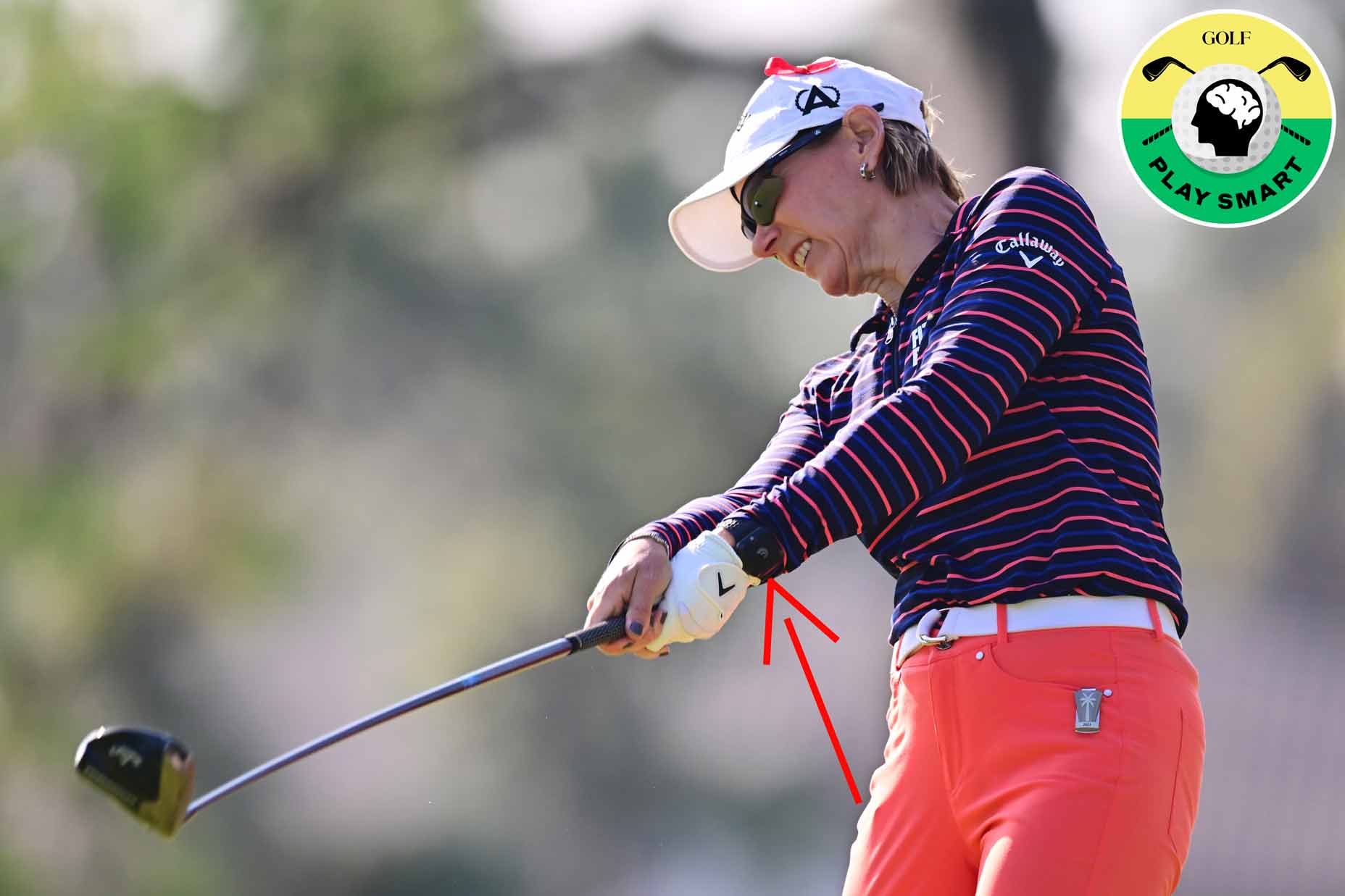Welcome to Play Smart, a regular GOLF.com game-improvement column that will help you play smarter, better golf.
Annika Sorenstam might be past her playing prime, but she’s still got plenty of game.
Take her performance in Round 1 of the HGV Tournament of Champions last week. Playing in the celebrity division, the 10-time major winner fired a bogey-free 69 that left her atop the leaderboard.
“It was the first non-bogey [round] in a long time,” Sorenstam said. “I am obviously very pleased to play here without a bogey.”
Sorenstam obviously had some of her best stuff when she pegged it up that day at Lake Nona — and not just based on her scorecard. The advanced data gathered on her swing tells a similar tale.
While Sorenstam played in the TOC, she wore with a deWiz swing analyzer. This wearable tech is worn like a wristwatch on the lead arm and tracks a variety of advanced metrics such as direction, length and time of the backswing. The tech records every swing you make and gives you the ability to track a number of variables that are key to making a solid strike.
deWiz Golf Swing Modifier
“What it does is [it’s] a great tool to track the transition, the length of the backswing and even the tempo,” Sorenstam said. “I know a lot of times [why] I hit it left, but I can see the numbers. It gives you more obviously accuracy.”
DeWiz tracked Sorenstam’s range session before her excellent opening round, and compared the data to her on-course performance later that day. The numbers back up the eye test assertion that Sorenstam’s swing was dialed in.
On Thursday, Sorenstam’s swing data from the practice range was consistent with her swing data on the course. Her length of backswing with her driver was only 1 centimeter shorter on the course than it was on the range, and her tempo was nearly identical.
| Length of backswing (cm) | Backswing time (seconds) | Start to impact time (seconds) | |
| Range (Rd. 1) | 111 | .63 | .94 |
| Course (Rd. 1) | 110 | .61 | .91 |
It’s an impressive display of consistency from Sorenstam to take her swing from the range to the course and see negligible differences, but from one of the GOATs, it shouldn’t come as a surprise.
But while Round 1 showcased Sorenstam’s consistency, Round 2 showed that she is still human. She struggled to groove her swing quite as well on Friday and made five bogeys and a double en route to a 78.
“I made a lot of mistakes out there and just didn’t feel comfortable,” she said. “I’m disappointed. It was not a good round at all.”
Once again, the data told a similar story.
Let’s take a look at her drive on No. 5, for example. Coming off two consecutive bogeys early in the round, Sorenstam was already fighting her swing. And on the 5th tee box, she made one of her worst swings of the day.
| Length of backswing (cm) | Backswing time (seconds) | Start to impact time (seconds) | |
| Range (Rd. 2) | 112 | .64 | .94 |
| Hole 5 | 108 | .60 | .89 |
We can see from the data above that when Sorenstam makes a poor swing, she gets shorter in her backswing, and speeds up her tempo. The result? A snap-hooked drive that finished in the left rough.
Every player will have different tendencies when they begin to fight their swings, but often it can be a guessing game. With deWiz, there’s no guesswork. The data is captured in real time so you can see exactly what went wrong and how it affected your contact and ball flight.
“It’s good to see yourself do one thing in practice and then to do something else in a tournament,” Sorenstam said. “And obviously that’s the key to be able to mirror that.”
